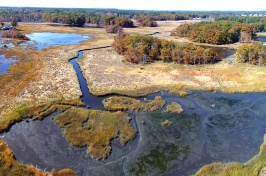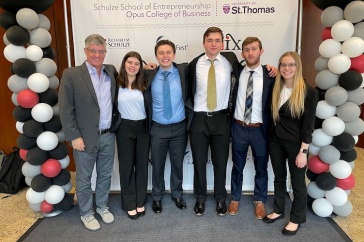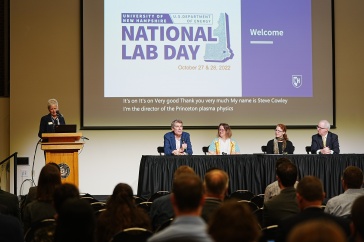UNH has established three new research centers that will leverage the university’s existing strengths to enhance interdisciplinary research opportunities for faculty and students — the Prevention Innovations: Research and Practice for Ending Violence Against Women Research Center; the Center for Advanced Materials and Manufacturing Innovations (CAMMI), and the UNH Center for Infrastructure Resilience to Climate.
Each new center, selected by the Office of the Senior Vice Provost for Research via an internal grant initiative, will receive $200,000 to boost its ability to compete for federal, state and private grants and contracts that support innovative research and scholarship.
“This funding takes these interdisciplinary research areas to the next level, from good to great,” says Jan Nisbet, senior vice provost for research. “It strengthens our research profile and it allows us to do some things that the investigators couldn’t do without this support.” Nisbet notes that the funding could help researchers hire administrative support or add research personnel – research faculty, graduate students or postdoctoral researchers – that would increase their capacity to make major contributions to their respective fields.
Established in 2006, Prevention Innovations is a research and training unit at UNH that develops, implements and evaluates programs, policies and practices to help end violence against women. The center’s work is nationally and internationally recognized for its contributions to the prevention of sexual and relationship violence and stalking. The multidisciplinary center includes faculty and students from the sociology, psychology, social work and justice studies departments as well as the women’s studies program and UNH Law School; Sharyn Potter (sociology) and Jane Stapleton are center co-directors.
The Center for Advanced Materials and Manufacturing Innovations (CAMMI) is poised to take advantage of national initiatives to stimulate advanced manufacturing in the form of new instrumentation, materials, technologies and workforce development. CAMMI will leverage existing collaborations with New Hampshire’s small- and medium-sized businesses and with larger corporations within and outside the state to enable innovations and advancements in technologies. CAMMI’s initial focus will be on composites, lightweight metals, nano-structured materials and electronic materials. Faculty from the departments of mechanical engineering (Todd Gross, Brad Kinsey, Yannis Korkolis), chemistry (Erik Berda, Glen Miller), chemical engineering (Xiaowei Teng) and the materials science program (David Lashmore, John Tsavalas) will be involved.
The UNH Center for Infrastructure Resilience to Climate (UCIRC) builds on the leading-edge work currently conducted at the UNH Infrastructure and Climate Network (ICNet), which brings together infrastructure engineers and climate scientists to address the impacts of a changing climate on transportation infrastructure. ICNet principals and professors of civil and environmental engineering Jo Daniel and Jennifer Jacobs will serve as UCIRC’s initial director and co-director, respectively; the center includes nearly a dozen additional faculty members from the departments of civil and environmental engineering, geography, mathematics and statistics and the Carsey School.
This is the second round of internal grants made by the Office of the Senior Vice Provost for Research; Nisbet says her office will provide annual funding opportunities around initiatives that expand or strengthen UNH’s research agenda and support faculty and student research and scholarship.
-
Written By:
Michelle Morrissey ’97 | UNH Magazine | michelle.morrissey@unh.edu


















































